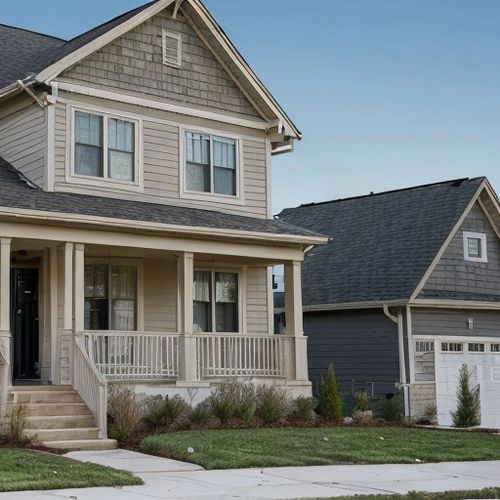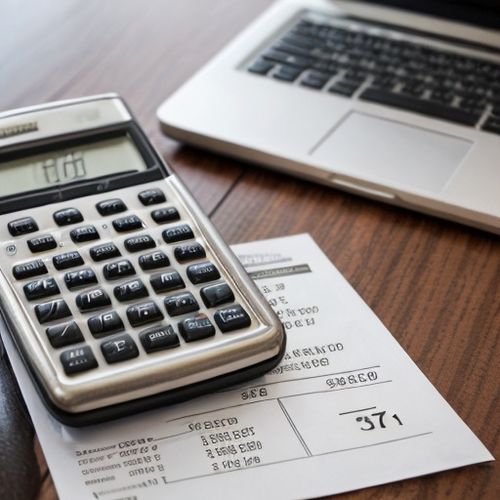The age-old debate between renting and buying a home continues to weigh heavily on the minds of many individuals and families. While both options offer distinct advantages and drawbacks, the long-term financial implications of each choice can significantly alter one’s economic trajectory. The decision isn’t merely about securing a roof over one’s head—it’s a complex financial calculation that hinges on market conditions, personal circumstances, and future aspirations.
The Flexibility of Renting
Renting a home provides a level of flexibility that buying simply cannot match. For those who value mobility—whether due to career changes, lifestyle preferences, or uncertainty about long-term plans—renting offers the freedom to relocate without the burdens of selling a property. Monthly rental payments, while often perceived as "throwing money away," eliminate the responsibilities of property maintenance, property taxes, and unexpected repair costs. In high-cost urban areas, renting can also allow individuals to live in desirable neighborhoods where purchasing a home would be financially out of reach.
However, renting does come with its own set of financial trade-offs. Unlike homeowners, renters do not build equity over time. Rent prices are subject to inflation and market fluctuations, meaning tenants may face rising costs without the benefit of asset appreciation. Additionally, renters have little control over their living environment; landlords can impose restrictions, raise rents, or even decide to sell the property, forcing a move. For those who prioritize stability and long-term wealth accumulation, these factors can make renting a less appealing option.
The Investment Potential of Homeownership
Buying a home is often framed as a cornerstone of financial stability and wealth-building. Over time, real estate has historically appreciated in value, allowing homeowners to build equity that can be leveraged for future investments or retirement. Mortgage payments, unlike rent, contribute toward ownership, and fixed-rate loans provide predictable housing costs even as inflation drives up other expenses. Homeownership also offers tax benefits, such as deductions for mortgage interest and property taxes, which can further enhance its financial appeal.
Yet, the path to homeownership is fraught with financial risks and obligations. Down payments, closing costs, and ongoing maintenance expenses can strain budgets, particularly for first-time buyers. Property values are not guaranteed to rise—economic downturns or local market shifts can lead to depreciation, leaving homeowners with assets worth less than their mortgage debt. Additionally, the illiquidity of real estate means selling a home can be a slow and costly process, making it difficult to access funds in times of financial need. For those who may need to relocate frequently or lack the resources to handle unexpected repairs, buying a home can become a financial burden rather than an asset.
Market Conditions and Personal Circumstances
The financial viability of renting versus buying often depends on broader economic factors. In markets where home prices are prohibitively high relative to incomes, renting may be the only feasible option. Conversely, in areas where mortgage payments are comparable to or lower than rent, buying may present a smarter long-term investment. Interest rates also play a critical role; low mortgage rates can make homeownership more affordable, while higher rates may tip the scales in favor of renting.
Personal circumstances are equally important in this decision. A stable job, a growing family, or a desire to put down roots may make buying a home more attractive. On the other hand, those in transitional phases of life—such as young professionals, frequent movers, or individuals with uncertain income streams—may find renting a more practical choice. There’s no one-size-fits-all answer, and the right decision varies based on individual goals, risk tolerance, and financial readiness.
The Long-Term Financial Picture
When evaluating the long-term financial impact of renting versus buying, it’s essential to consider opportunity costs. Money spent on a down payment or home maintenance could alternatively be invested in stocks, bonds, or other assets that may yield higher returns. Renters who diligently invest their savings can sometimes outperform homeowners in terms of net worth, particularly in stagnant or declining housing markets. However, real estate offers a unique combination of utility and investment potential that other assets cannot replicate—a home provides shelter while also serving as a store of value.
Ultimately, the choice between renting and buying is deeply personal. It requires a careful assessment of financial health, lifestyle preferences, and future aspirations. While homeownership has traditionally been viewed as the ultimate financial milestone, the modern economy has made renting a viable and sometimes preferable alternative. The key lies in understanding the trade-offs and making an informed decision that aligns with one’s long-term financial well-being.

By Benjamin Evans/Apr 24, 2025

By Olivia Reed/Apr 24, 2025

By David Anderson/Apr 24, 2025

By David Anderson/Apr 24, 2025

By Amanda Phillips/Apr 24, 2025

By Emily Johnson/Apr 24, 2025

By Sarah Davis/Apr 24, 2025

By Jessica Lee/Apr 24, 2025

By John Smith/Apr 24, 2025

By Grace Cox/Apr 24, 2025

By Olivia Reed/Apr 24, 2025

By Lily Simpson/Apr 24, 2025

By Noah Bell/Apr 24, 2025

By Megan Clark/Apr 24, 2025

By Noah Bell/Apr 24, 2025

By George Bailey/Apr 24, 2025

By George Bailey/Apr 24, 2025

By Natalie Campbell/Apr 24, 2025

By Daniel Scott/Apr 24, 2025

By Benjamin Evans/Apr 24, 2025